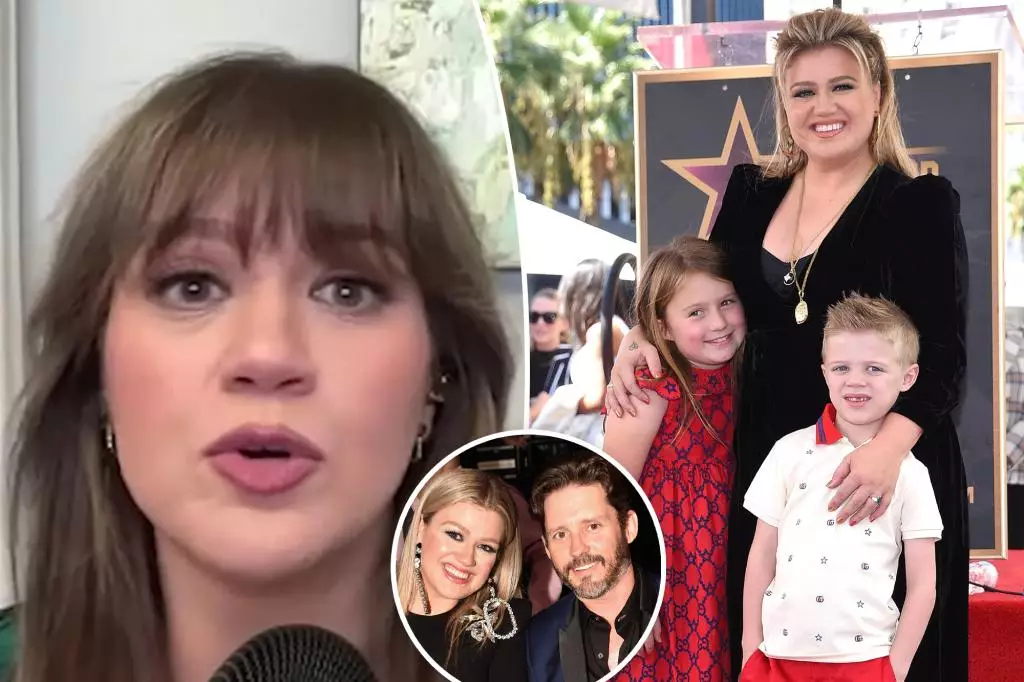In a candid conversation, Kelly Clarkson recently opened up about the complexities of navigating single parenthood while contemplating romantic interests. Speaking to radio host Ellen K, she shared insights into her children’s feelings, revealing that both her daughter, River Rose, and son, Remington ‘Remy’ Alexander, are not exactly thrilled with the idea of their mother dating. For many parents, the concern of how children adjust to new romantic relationships is a universal dilemma, and Clarkson’s experience highlights the tension between personal desires and parental duties that many single parents face.
For Clarkson, whose marriage to Brandon Blackstock ended in a highly publicized and contentious divorce, it seems her children are understandably protective of the family dynamics they once knew. Their plea for her to remain uninvolved with anyone else underscores the emotional challenges children face when their parents’ relationships change. As Clarkson emphasized, children often find it difficult to envision their parents with someone other than their father. This situation showcases the delicate balance that must be maintained between the aspirations of a parent and the comfort of their children.
Clarkson made it a point to communicate openly with her kids about dating, reminding them that seeking love is a natural part of life. “I’m allowed to do that,” she insistently tells her daughter, showcasing her commitment to modeling healthy relationships. This open dialogue serves not only to reassure her children but also to normalize the idea that seeking love, regardless of past experiences, is an intrinsic part of life. It’s essential for children to understand that love and connection, even when fostered outside of their immediate family, can be a positive and enriching experience.
Despite her children’s reluctance, Clarkson is keenly aware of her needs, expressing a desire to experience the exhilarating early stages of dating again. The fondness she has for the anticipation and excitement of blossoming romance serves to illustrate the human desire for connection, particularly after a period of emotional upheaval. Even without actively seeking a new partner, the idea of falling in love again captivates her imagination, evoking feelings of joy and hope.
While she remains unapologetically focused on her kids and her career, Clarkson admits to feeling a sense of freedom in being noncommittal at this time. Interestingly, she doesn’t view romance strictly through the lens of serious commitments; rather, she hints at the possibility of enjoyable moments without the need to dive into exclusivity. This perspective challenges traditional notions of dating, illustrating how individuals can create their own rules that align with their current life stage, particularly for those who have recently emerged from a marriage.
As she continues to process her divorce and its implications, Clarkson’s journey sheds light on the broader conversations surrounding post-divorce life, particularly for mothers. The singer’s commitment to prioritizing her children’s feelings while acknowledging her own need for companionship reflects a modern approach to relationships after divorce—one that seeks balance, understanding, and ultimately, happiness. In the end, Clarkson’s narrative empowers other single parents facing similar dilemmas, showing that it’s possible to seek fulfillment without compromising their children’s emotional well-being.

